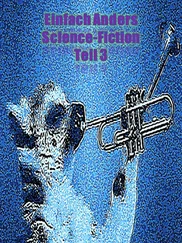Sarah Bolton - Famous Men of Science
Здесь есть возможность читать онлайн «Sarah Bolton - Famous Men of Science» — ознакомительный отрывок электронной книги совершенно бесплатно, а после прочтения отрывка купить полную версию. В некоторых случаях можно слушать аудио, скачать через торрент в формате fb2 и присутствует краткое содержание. ISBN: , Жанр: foreign_language, foreign_antique, foreign_prose, Биографии и Мемуары, на английском языке. Описание произведения, (предисловие) а так же отзывы посетителей доступны на портале библиотеки ЛибКат.
- Название:Famous Men of Science
- Автор:
- Жанр:
- Год:неизвестен
- ISBN:http://www.gutenberg.org/ebooks/35489
- Рейтинг книги:3 / 5. Голосов: 1
-
Избранное:Добавить в избранное
- Отзывы:
-
Ваша оценка:
- 60
- 1
- 2
- 3
- 4
- 5
Famous Men of Science: краткое содержание, описание и аннотация
Предлагаем к чтению аннотацию, описание, краткое содержание или предисловие (зависит от того, что написал сам автор книги «Famous Men of Science»). Если вы не нашли необходимую информацию о книге — напишите в комментариях, мы постараемся отыскать её.
Famous Men of Science — читать онлайн ознакомительный отрывок
Ниже представлен текст книги, разбитый по страницам. Система сохранения места последней прочитанной страницы, позволяет с удобством читать онлайн бесплатно книгу «Famous Men of Science», без необходимости каждый раз заново искать на чём Вы остановились. Поставьте закладку, и сможете в любой момент перейти на страницу, на которой закончили чтение.
Интервал:
Закладка:
She taught him to read at four, and, though ignorant of Latin, she made him repeat his lessons to her daily, so that he was the best prepared of any boy in school. She read to him history and general literature. She made him draw under her inspection. She talked with him about books till a passion for reading became the chief characteristic of his nature. No wonder that he loved such an inspiring woman. The history of most great men emphasizes the fact that the mothers cannot be too highly educated. At ten years of age he was placed in a high school, called a Gymnase, where for four years he studied Latin, Greek, history, geography, and mathematics, and was constantly at the head of his classes. Naturally enthusiastic, he played as heartily as he studied.
As is often the case, a book turned the course of his life, and made him famous. At the Gymnase he found a work of Gesner, the Swiss naturalist, and this, with its colored plates, first turned his attention to natural history. This liking was intensified by finding at the house of a relative the complete works of Buffon, the noted naturalist, who wrote thirty-six volumes in his own brilliant and poetic style, describing the animal kingdom. The boy became intensely interested in the habits of quadrupeds and birds; their form, their color, and their homes. He copied the illustrations in the work, and colored them with paint or pieces of silk. He always carried a volume of Buffon in his pocket to read when he had a moment of leisure. At twelve, he was a well-read naturalist.
In his last year in the Gymnase, when he was fourteen, he chose a certain number of his school-fellows, and formed an Academy. Every Thursday he gathered the lads into his room, and placing them around a table, seated himself upon his bed, and after some book had been read on natural history, philosophy, history, or travels, he asked their opinions of it, and then, being president, summed up the argument in a clear and concise manner. The mother's seed-sowing in the mind of her ardent boy was bearing fruit.
As the family were poor, and had only a soldier's pension to support them, it was decided that Georges should enter the free school at Tübingen, and prepare for the church. But the principal of the Gymnase, who had never forgiven the boy for some playful trick, placed his composition in the third rank. Georges knew that it deserved the first rank, and that this low standard would affect his position in college. He, therefore, resolved not to enter Tübingen, and, though he was thereby lost to the church, he was saved for great scientific work.
A fortunate thing now happened. A woman, a princess, who knew about the bright boy, spoke of him to her brother, Duke Charles of Würtemberg. When the duke visited Montbéliard, he sent for the lad, questioned him as to what he had learned, asked to see his drawings, and ended by sending him free of expense to the University of Stuttgart, to enter his own Academy, called the Academy Caroline. It seemed a little thing for a lady to speak of a boy's studiousness and great love of books, but it proved a great thing for Georges Cuvier and for the scientific world. Thousands of women and men could do more of these little acts of kindness, if they only thought of it. Well said Thomas Hood: —
"Evil is wrought by want of thought,
As well as want of heart."
The boy of fourteen said good-by to his devoted mother, and started for Stuttgart, seated between the Chamberlain and the Secretary of the Grand Duke. Both spoke German all the way, and the lonesome boy did not understand a word. He entered the Academy May 4, 1784, and for four years studied mathematics, law, philosophy, finance, and the like.
But he lost no opportunity to study natural history. A professor gave him the works of Linnæus, and he gained inspiration from the young man who could travel four thousand miles through the marshes of Lapland, nearly barefoot and half-starved, in his study of plants. Georges now collected a herbarium. When he had leisure, he drew and colored insects, birds, and flowers with great accuracy. He kept a number of living insects in his room, constantly feeding them, and watching their habits. He said years afterward, "If I had not studied insects from choice, when I was at college, I should have done so later, from a conviction of its necessity." He declared that the wonders he met with in the organization of insects always elevated his thoughts.
Nine months after his arrival in Germany, he won the prize at the Academy for excellence in the German language, receiving the order of Chevalerie, an honor given only to five or six out of four hundred pupils. This entitled the recipients to dine at a separate table, and to enjoy many advantages under the immediate patronage of the Grand Duke.
When the four years of college life were over, the father's pension having ceased on account of the disturbed financial condition of France, the youth of eighteen needed to find employment at once. Nothing seemed open to him but the position of tutor in a private family, a thing much deprecated by his school-fellows, who had already built many air-castles for his future.
But young Cuvier had the courage and the wisdom to do what necessity required, and to do it cheerfully. In July, 1788, he entered the family of Count d'Héricy in Caen, Normandy, and for six years taught his only son. He took with him, says a friend, "these admirable foundations for glory: a love of labor, depth of reflection, perseverance, and uprightness of character." While teaching here, he met the nobility of the surrounding country, increasing thereby his polish of manner and tact, for which he was celebrated all his life.
Living by the sea, he was led to study marine animals. The casual dissection of a calamar, a species of cuttle-fish, influenced him to study the anatomy of mollusca, which afterward led to his great classification of the whole animal kingdom. In this obscure corner of Normandy, the young teacher observed, and committed his observations to paper. Some young men would not have found time for such work. Those only succeed who have sufficient force of character to make time for what they wish to do. To allow one's time to be wasted, is to allow one's opportunities for eminence to go by forever.
Nearly every evening Cuvier attended a small society of which he was secretary, which gathered chiefly to discuss agricultural and kindred topics. M. Tessier, living there in exile under an assumed name, the author of several valuable articles in the Encyclopedia, was often present, and between him and the young secretary a warm friendship soon existed. As the friendship of the Marquis Guidubaldo proved valuable to Galileo, so that of M. Tessier proved of great benefit to Cuvier. He led the young and comparatively unknown naturalist, though some of his articles had been published in learned journals, to correspond with Geoffroy St. Hilaire, De Lacépède, and others on scientific subjects. Through their influence he was finally called to Paris, made a member of the Commission of Arts, and professor at the Central School of the Panthéon.
He was only twenty-six, and this was but the beginning of honors. Here he composed his "Elementary Treatise on the Natural History of Animals." His great desire was to be attached to the Museum of Natural History, where he could study the collections and enlarge them. Very soon after his arrival in Paris, M. Mertrud was appointed to the newly created chair of Comparative Anatomy at the Jardin des Plantes. He was advanced in years. And now came the opportunity for friendship to do its work. Geoffroy St. Hilaire and De Lacépède were his colleagues. They urged that their friend Cuvier be appointed assistant, and Mertrud gladly consented. This was indeed an honor, since Daubenton, Buffon, Lamarck, and other European celebrities had filled this position.
Читать дальшеИнтервал:
Закладка:
Похожие книги на «Famous Men of Science»
Представляем Вашему вниманию похожие книги на «Famous Men of Science» списком для выбора. Мы отобрали схожую по названию и смыслу литературу в надежде предоставить читателям больше вариантов отыскать новые, интересные, ещё непрочитанные произведения.
Обсуждение, отзывы о книге «Famous Men of Science» и просто собственные мнения читателей. Оставьте ваши комментарии, напишите, что Вы думаете о произведении, его смысле или главных героях. Укажите что конкретно понравилось, а что нет, и почему Вы так считаете.












